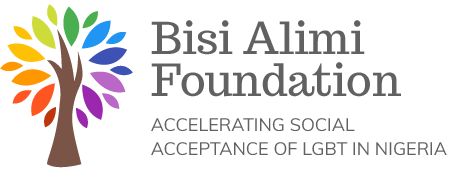In Nigeria, Gender-based violence (GBV), affects millions of women and girls every single day. On top of facing this violence, LGBTQ+ women face further stigma, criminalization, and lack of protection under the law. This year’s theme for the 16 Days of Activism Against Gender-Based Violence is “Time to Act.” The campaign runs from November 25th, the International Day for the Elimination of Violence Against Women, to December 10th, Human Rights Day. This annual global campaign, launched in 1991 by the Center for Women’s Global Leadership, unites people worldwide to confront gender-based violence (GBV), shed light on its root causes, and inspire collective action.
Why GBV in Nigeria Demands an Inclusive Approach
- Child Marriages and Exclusion from Education: According to a World Bank report, 22 million underage girls in Nigeria have been married off, and many forced to drop out of school as a result. But it’s not just child brides who are affected. LGBT+ women face bullying, harassment, and even expulsion from schools because of their perceived sexual orientation or gender identity, further limiting their opportunities to live freely or pursue the same opportunities as others (United Nations, 2019).
- Economic Disempowerment: Reports show that Nigerian women make up a large percentage of the informal labor force, yet many women are stuck in low-paying jobs and subjected to workplace harassment. LGBT+ women face even tougher barriers to work, often being excluded from job opportunities because of stigma and discrimination. This leaves them vulnerable and without the financial means to escape familial abuse or build independent lives (World Bank, 2023).
- Sexual and Domestic Violence: Sexual violence is rampant in Nigeria, with 30% of women aged 15-49 reporting physical or sexual abuse. Lesbian and bisexual women face a particularly heinous form of GBV called corrective rape, where perpetrators believe they can “fix” someone’s sexual orientation. This form of violence is brutal, leaving emotional and physical scars, and it often goes unpunished due to the lack of legal protection for LGBT+ individuals.
- Family-Based Violence: Just as some Nigerian girls are subjected to child marriages, LGBT+ women are often forced into marriages where families compel them to marry men to conform to societal expectations. Those who resist are frequently disowned, abused, or ostracised and sometimes even killed (Human Rights Watch, 2023).
- Lack of Legal Protections: While the Violence Against Persons (Prohibition) Act (VAPP) exists to address GBV for all women, the enforcement is weak, and many women are too scared to report violence due to fear of retaliation or cultural pressures. LGBT+ women are even more vulnerable, as their identities are criminalized, and many survivors fear they’ll be further victimized by law enforcement. (Amnesty International, 2024)
Why Economic Empowerment Matters
Economic empowerment isn’t just about giving women the means to support themselves. It’s about giving them freedom. The freedom to walk away from abuse, to stand up for their rights, and to live on their terms. When women, including LGBT+ women, have access to education, job opportunities, and financial resources, they are better equipped to leave abusive environments, gain autonomy, reduce their vulnerability to exploitation and violence, challenge oppressive systems, and advocate for their rights. This creates a ripple effect, benefiting families, communities, and the nation as a whole.
Bisi Alimi Foundation: Paving the Path to Equality and Empowerment
At the Bisi Alimi Foundation, we know that for many LGBT+ women in Nigeria, economic independence is the first step in escaping violence and discrimination. Our programs are designed to create opportunities and provide support to queer women who need it most.
Here’s how we’re making a difference:
- Vocational Training and Entrepreneurship: We equip LGBT+ women with the skills they need to build a future they control, with programs like the Rainbow Academy, queerpedia training, and the National LGBT Chamber of Commerce (NGLCC). By offering marketable and transferable skills, we help them take control of their financial futures, reduce their dependence on abusive situations, and create opportunities, reducing dependency on hostile family members or partners.
- Economic Advocacy and Workplace Inclusion: We advocate for inclusive workplace policies that protect LGBT+ individuals from discrimination. By partnering with organizations and businesses, encouraging them to create safe and equitable spaces for all employees, and ensuring that LGBT+ women can access and retain jobs without fear of harassment (This is still a work in progress due to cultural norms and beliefs.)
- Financial Support: Our mini-grant initiative, offered through the Rainbow Academy program to LGBTQ+ scholars who have been equipped for personal and business growth, provides financial support to LGBT+ persons who need it most. This helps them get back on their feet and start rebuilding their lives, free from abuse.
- Public Awareness Campaigns: We use the power of storytelling to challenge the harmful myths and stereotypes that fuel violence against women and LGBTQ+ persons. By sharing the voices and experiences of LGBT+ women, we aim to change attitudes and reduce stigma.
A Call to Action: The Time is Now!
As we mark the 16 Days of Activism Against Gender-Based Violence, it’s clear: the time to act is now. The fight against GBV can’t wait. It’s a collective effort that involves governments, organizations, and, yes, you. We invite you to join us in advocating for the rights of all women, especially LGBT+ women.
1. DONATE: We rely on the generosity of our supporters to continue our work, and your donations help us provide resources, safe spaces, and opportunities for LGBTQ+ women and persons in need.
2. Use Your Voice: Advocate for inclusion using hashtags like #EndGBV and #ProtectLGBTQWomen.
- We’d love to hear from you! Talk to us on social media


Recent Comments